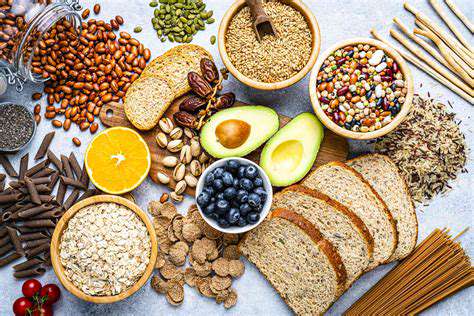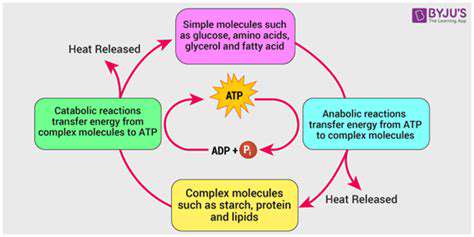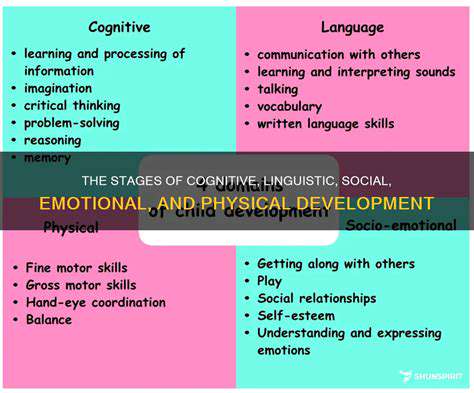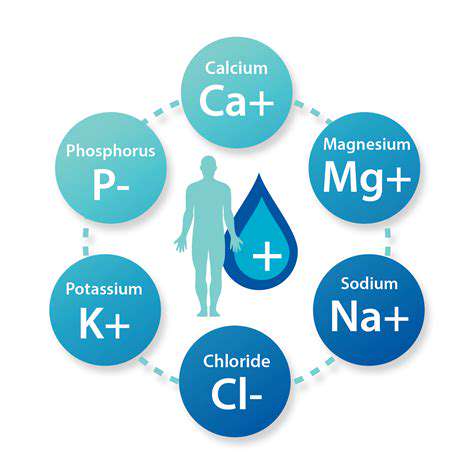Foods That Naturally Boost Your Metabolism
Lean Protein for Muscle Growth
Incorporating lean protein sources forms the foundation of effective muscle development. Options like skinless poultry, white fish, and lean beef cuts deliver concentrated amino acids without excessive saturated fat. These building blocks facilitate muscle repair after strenuous workouts, making them indispensable for fitness enthusiasts.
Regular consumption of high-quality protein sources promotes positive nitrogen balance—a metabolic state conducive to muscle growth. This increased lean mass then elevates your basal metabolic rate, creating a virtuous cycle of improved body composition.
Eggs: A Nutritional Powerhouse
Few foods match eggs for their nutritional density and protein quality. The yolks contain essential nutrients like choline—important for brain function—while the whites provide pure, easily digestible protein. This combination makes eggs particularly effective for post-workout recovery when muscles need both protein and micronutrients.
Recent research confirms that moderate egg consumption doesn't negatively impact cholesterol levels for most people, making them a safe choice for daily consumption. Their versatility in cooking methods ensures you'll never tire of incorporating them into your diet.
Dairy Products for Muscle Recovery
Fermented dairy products like Greek yogurt and kefir offer dual benefits—high-quality casein protein paired with gut-healthy probiotics. The slow-digesting nature of casein makes dairy an excellent choice for sustaining muscle repair overnight. Meanwhile, the calcium content supports bone density, which is crucial for maintaining an active lifestyle.
For those sensitive to lactose, aged cheeses and lactose-free options provide similar protein benefits without digestive discomfort. The conjugated linoleic acid (CLA) found in grass-fed dairy may offer additional metabolic benefits.
Quinoa: A Complete Protein Source
This ancient grain stands out in the plant kingdom by offering all essential amino acids—a rarity among vegetarian protein sources. Its high lysine content (often lacking in plant proteins) makes it particularly valuable for tissue repair. The complex carbohydrates in quinoa provide sustained energy for workouts while the fiber promotes digestive health.
Quinoa's mild flavor and adaptable texture make it an easy substitute for rice or pasta in most dishes. Sprouted quinoa offers even greater nutrient bioavailability for maximum benefit.
Legumes: Plant-Based Protein Powerhouses
Beans and lentils deliver an impressive nutrient package—substantial protein content combined with slow-digesting carbohydrates and ample fiber. This trifecta promotes stable blood sugar levels while supporting muscle maintenance. The resistant starch in cooked-and-cooled legumes acts as a prebiotic, nourishing beneficial gut bacteria linked to metabolic health.
Soaking and proper preparation can enhance nutrient absorption and reduce digestive discomfort. Combining legumes with grains creates a complete protein profile comparable to animal sources.
Nuts and Seeds: Healthy Fats and Protein
While known for their healthy fats, nuts and seeds also contribute meaningful amounts of plant protein. Almonds, pumpkin seeds, and hemp hearts offer magnesium—a mineral crucial for muscle function and energy production. The polyunsaturated fats in walnuts and flaxseeds help regulate inflammation that can interfere with recovery.
Raw or dry-roasted varieties preserve delicate nutrients better than oil-roasted options. Their portability makes nuts and seeds ideal for between-meal snacks that prevent energy crashes.
Seafood: Omega-3s and Protein
Fatty fish like wild salmon and sardines provide the complete protein of animal sources plus anti-inflammatory omega-3s. These essential fatty acids enhance insulin sensitivity—key for nutrient partitioning to muscles rather than fat stores. The selenium in seafood supports thyroid function, which regulates metabolic rate.
Smaller, cold-water fish typically have lower mercury concentrations than larger predatory species. Canned options offer affordable, shelf-stable alternatives to fresh seafood.












